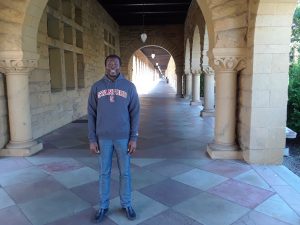Interdisciplinary co-operation is highlighted in the mission of Turku School of Economics stating: “We produce high-quality intellectual contributions drawing on discipline-based and interdisciplinary scholarship… “ What does it mean in praxis?
Interdisciplinary co-operation can be an eye-opener. I have learned much more about innovation diffusion in an old cemetery in Britain than in all the tens of innovation-related conferences I have been visiting. Best insights into customer journey and customer experience I have gained from doctors and experts in psychology and philosophy. Anthropologists have taught me more about methods than all those method-related articles from my own field.
This is not to undermine my own disciplines. On the contrary, I am very proud of Innovation Management and International Business and feel that they are very suitable for dealing with complex contemporary issues. However, understanding human behaviour entails studying complex networked intertwined dynamical systems. Consequently, research problems become more multifaceted and multidimensional – leading towards more complex research designs. This is where interdisciplinary research settings are required.
However, interdisciplinary projects can be difficult mountains to climb. Disciplines are steeped in decades or centuries old traditions and worldviews. Researchers are experts who have socialised habits that are hard to unlearn. Interdisciplinary communication is demanding and it entails a high risk of misunderstanding. Therefore, partner selection in interdisciplinary projects is extremely important. Good interdisciplinary partners are a scarce resource worth gold.
One of the most important capacities of a researcher is continuous curiosity. Interdisciplinary projects feed the curiosity by opening new worlds and discomfort zones – and that is where the Eureka moments are born. If you want nice, neat and safe progress with well-focused topics, interdisciplinary projects may not be your cup of tea. Then do not expect disruptive ideas either. If you are fine with learning constantly new things and connecting your ideas to even unconventional fields you are lucky; you may not have the clearest career path but I guarantee that you will certainly have much more gratifying moments while wandering along it!
Birgitta Sandberg
University Research Fellow

Recent Comments